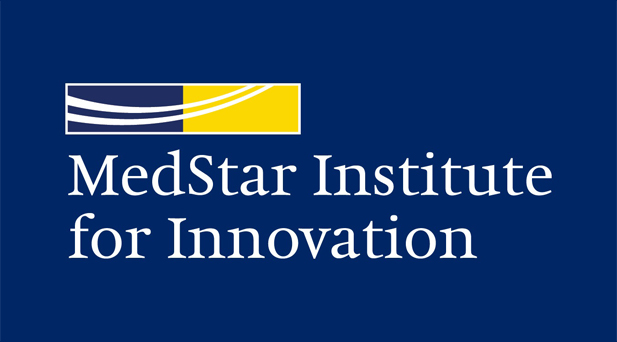
Fifty middle-school girls from Washington, D.C., public and charter schools worked over two days to design mobile applications to help youth develop healthy habits and reduce stress during the first-ever DigiGirlz Health Hackathon in the D.C. region. The competition, held May 18-19, was designed to engage promising middle school students in science, technology, engineering and math (STEM) and encourage them to pursue their interests from an early age.
DigiGirlz is a Microsoft program to foster girls’ interest in STEM careers that was started in 2000 and now is in 40 countries.
The MedStar Institute for Innovation was a partner for the D.C. DigiGirlz Hackathon, with Cardinal Health and 1776.
Microsoft, Cardinal Health and MedStar trainers and mentors taught the girls techniques for building apps, including ideation, wire framing and design. They also advised and assisted the girls during the process of creating and designing their apps. Embedded into the training were ways to address concrete health concerns that could directly benefit the girls’ wellbeing: managing stress and engaging in healthy habits.
“This event is an example of MedStar's investment in the future of the communities we serve. Specifically, we are proud to be supporting a program that raises the bar and reduces disparities in science and technology education. Middle school girls of today from D.C. public and chartered schools can become the technical, scientific and healthcare workforce leaders of tomorrow,” said Mark S. Smith, MD, chief innovation officer of MedStar Health and the director of the MedStar Institute for Innovation.
Students presented their apps to a panel of judges from the partner organizations, with Diane Caslow, vice president of Strategic and Business Planning, representing MedStar Health.
The winning team of five students, each awarded a Samsung tablet, developed an app that helps youth get advice from responsible adults. Using video or chat functions, students can post questions to the app and receive responses on stressful topics like school, bullying, and challenges in the home.
Other teams presented apps to help youth connect with mentors, curb stress, find healthy places to eat, and track the emotions of their friends and family. One app, CalmPalm, uses music and motion to curb stress.
Most important were the girls’ self-professed lessons learned that focused on the realization that STEM education is not about sitting alone at a computer, but about becoming empowered to use the tool of technology to solve meaningful challenges.
About the MedStar Institute for Innovation (MI2)
The Medstar Institute for Innovation is unique among innovation centers that are embedded in health systems. MI2’s approach is to create an innovation ecosystem across MedStar Health that fosters the vast creative talent and energy of its 31,000 associates and 6,000 physicians. MI2 itself has developed deep technical expertise human factors engineering, health influence and engagement, innovative learning and simulation, and digital health and data science. MI2, chartered in 2008, also serves as the portal for engaging outside start-ups and entrepreneurial collaborators to apply new ideas and innovative approaches to care for people and advance health. For more information, see mi2.medstarhealth.org.









